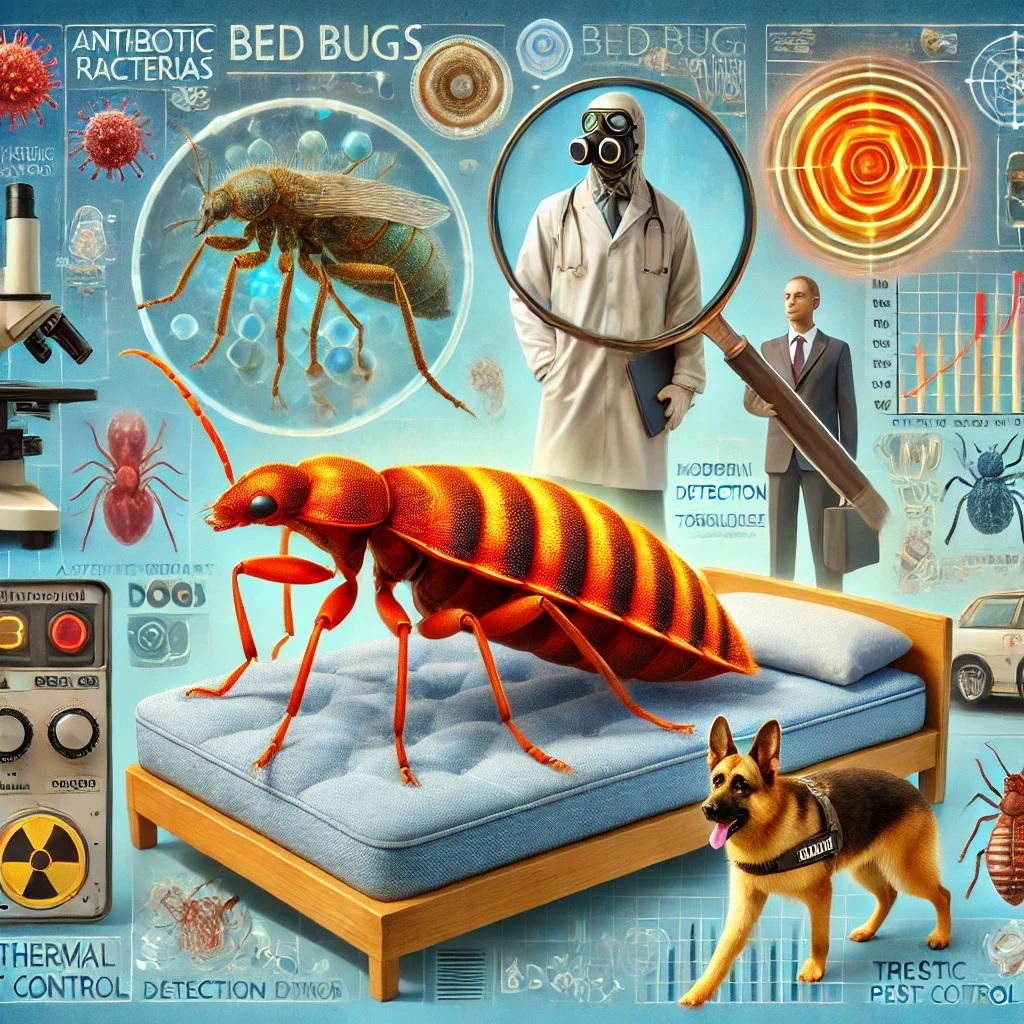By ThermoPest – Your Local Pest Control Experts
Let’s face it—bed bugs are the house guests nobody wants. They sneak in, they bite, and once they settle down, they can be incredibly difficult to evict. But apart from being an itchy nuisance, have you ever wondered what role bed bugs play in public health and disease research? Bed bugs have a long history of causing discomfort, but their role in epidemiology is far more interesting—and a bit more complicated—than most people realise.

Historically, bed bugs were believed to be carriers of all sorts of diseases. People assumed these tiny bloodsuckers spread infections just like mosquitoes or fleas. Back in the day, some even thought bed bugs were responsible for epidemics like the plague or typhus, which we now know isn’t true. The fact that bed bugs were often found in unsanitary living conditions only added to the belief that they must have been spreading disease.
In the early 20th century, scientists started investigating whether bed bugs were the dangerous disease vectors many feared. Early studies suggested a link between bed bugs and certain diseases, but as time went on, it became clear that these little pests, while irritating, weren’t as harmful as once thought—at least not in the way people imagined.
So, are bed bugs responsible for spreading diseases? The short answer is no—at least not in the way mosquitoes or ticks do. Bed bugs don’t transmit diseases like malaria or Lyme disease. But that doesn’t mean they’re harmless. Bed bugs can still have a big impact on public health, and that’s where epidemiology comes into play.
Even though bed bugs don’t spread diseases directly, they cause other problems that affect health. Their bites can lead to intense itching, and scratching those bites can cause skin infections. For some people, particularly those with allergies, bed bug bites can trigger serious allergic reactions, which might need medical attention.
And let’s not forget the mental health side of things. People who experience bed bug infestations often suffer from anxiety, insomnia, and even depression. The stress of dealing with an infestation—especially in a home—can be overwhelming. For public health experts, these indirect effects are just as important to study as the physical ones.
Bed bugs have been a subject of research in vector control for a long time. Now, you might be thinking, “If bed bugs don’t transmit diseases, why are they included in these studies?” Good question! While bed bugs aren’t as dangerous as mosquitoes or fleas, they’re still pests that can seriously affect public health.
In urban areas, where people live close together, bed bugs can spread quickly. This makes them an important factor in studies on pest control and disease prevention, particularly in places like shelters, hotels, and high-density housing. Understanding how to control bed bugs helps protect vulnerable populations from the mental and physical health issues they cause.
Studying bed bugs isn’t as straightforward as you might think. One of the biggest challenges researchers face is the difficulty in tracking infestations. Bed bugs are sneaky—they hide during the day, and people often don’t realise they have an infestation until it’s out of control. This makes it tough for epidemiologists to gather accurate data on how widespread bed bug problems are.
Another issue is underreporting. Bed bug infestations carry a stigma, and people are often embarrassed to admit they have a problem. Whether it’s a homeowner keeping quiet or a hotel trying to protect its reputation, underreporting makes it harder to get a clear picture of how bed bugs impact public health.
While we know bed bugs aren’t spreading diseases like other pests, there’s still a lot to learn about them. Some recent research has looked into whether bed bugs might play a role in the spread of antibiotic-resistant bacteria, which could make infections from bed bug bites more dangerous. There’s also interest in studying how bed bug infestations impact allergy sufferers, as bed bug bites can exacerbate allergic reactions.
On the plus side, advances in technology have made it easier to detect and monitor bed bug infestations. Tools like K9 detection and thermal imaging are helping researchers get a better idea of where infestations are happening and how to manage them more effectively.

Bed bugs might not be spreading life-threatening diseases, but their impact on public health is undeniable. From causing secondary infections to contributing to stress and anxiety, these little pests can do a lot of damage. That’s why bed bugs are still studied in epidemiology, and why controlling them is an important part of public health efforts.
At ThermoPest, we understand how frustrating bed bugs can be—and how important it is to tackle the problem quickly. If you’re worried about bed bugs in your home or business, don’t hesitate to reach out. Our team is here to help you get the peace of mind you deserve, without the stress of dealing with these pests on your own.